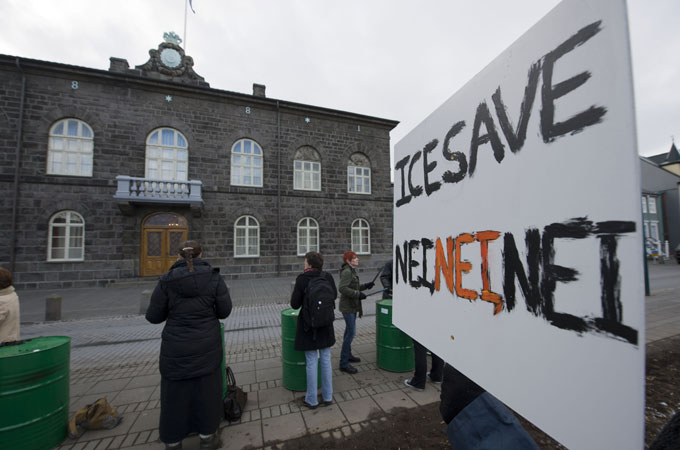Iceland’s ex-PM on trial over banks crisis
Geir Haarde denies negligence as he faces special court over collapse of country’s banks during 2008 financial crisis.

The former prime minister of Iceland has gone on trial in a special court in Reykjavik on charges of negligence over his handling of the country’s 2008 financial crisis and the collapse of the country’s banking system.
Proceedings against Geir Haarde are being held at the Landsdomur court, a special body to try cabinet ministers, which has never before heard a case in its more than 100-year existence.
The case will examine how Iceland’s three main banks all collapsed within the space of a few days at the height of the global financial crisis in October 2008, at the cost of billions of dollars to foreign customers who had invested in online savings accounts offering high interest rates.
Haarde, 60, led the Independence Party government at the time.
In a statement to the court, Haarde said: “I reject all accusations, and believe there is no basis for them,”
The former prime minister has called charges made against him “political persecution” and insisted he would be vindicated during the trial.
“I hail the fact that I get to answer questions in the case,” he told the court.
Blame game
In the crisis’s immediate aftermath, as unemployment and inflation skyrocketed, many sought to blame the government for the havoc across the 330,000-strong nation , and a wave of public protests forced Haarde out of government in 2009.
 |
| The failure of the Icesave bank led to a dispute over compensation, which remains unresolved [AFP] |
Some Icelanders however see the trial of Haarde as scapegoating, while others argue that public accountability is essential following the country’s financial collapse.
Legal experts say he has a strong chance of beating the charges, because of the strength of his legal team, growing sympathy for a politician alone in shouldering blame, and because the court’s structure, laid out in 1905, is flawed because it allows legislators, not lawyers, to press charges.
A parliament-commissioned report put much of the blame on Haarde and his government, saying that officials “lacked both the power and the courage to set reasonable limits to the financial system”.
It was up to legislators whether to indict those officials. After a heated debate, Haarde was referred to the special court, the Icelandic parliament voted 33-30 to pursue charges against Haarde, but not against three other members of his government.
The special court will consist of 15 members, five supreme court justices, a district court president, a constitutional law professor and eight people chosen by parliament.